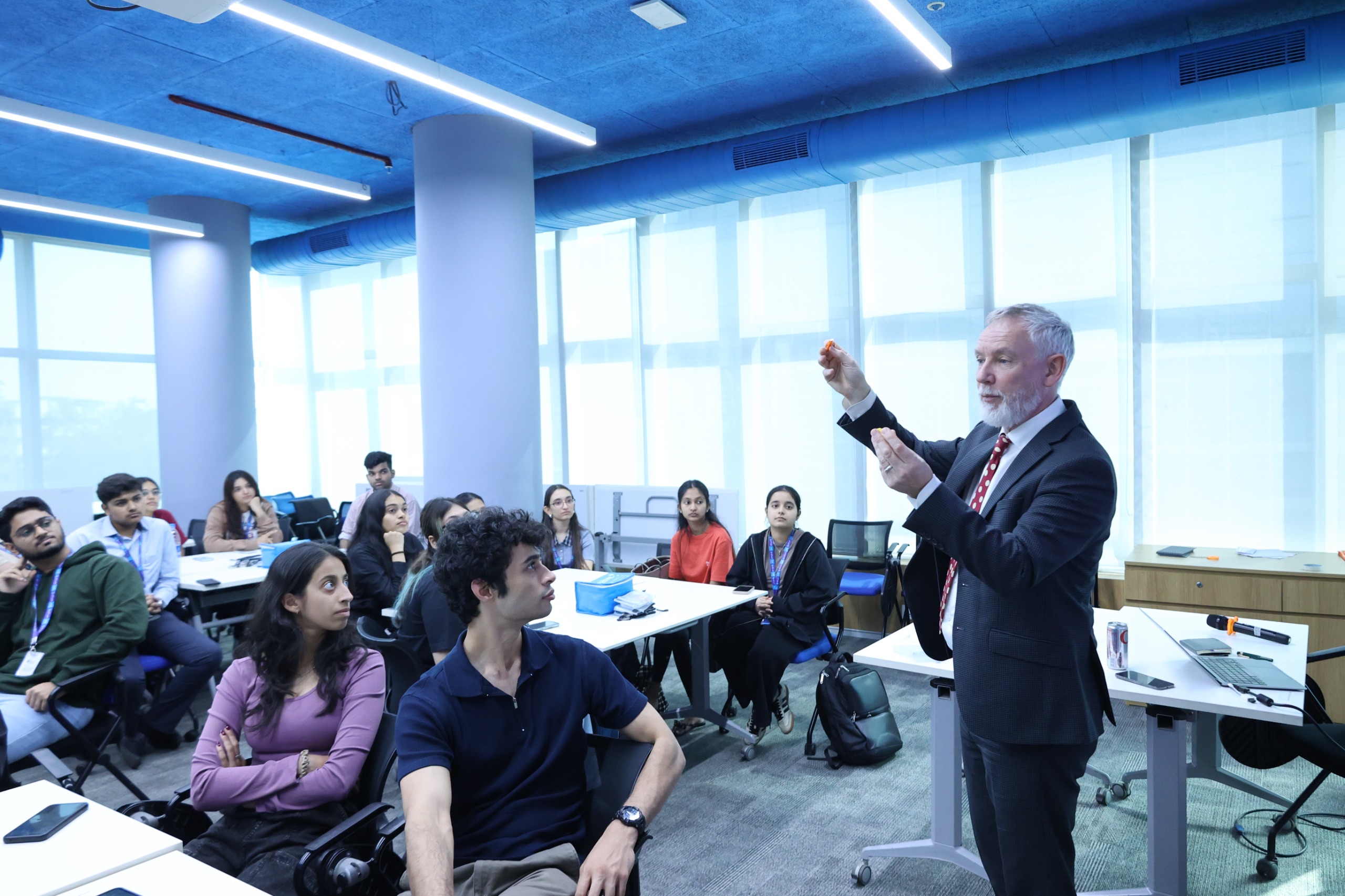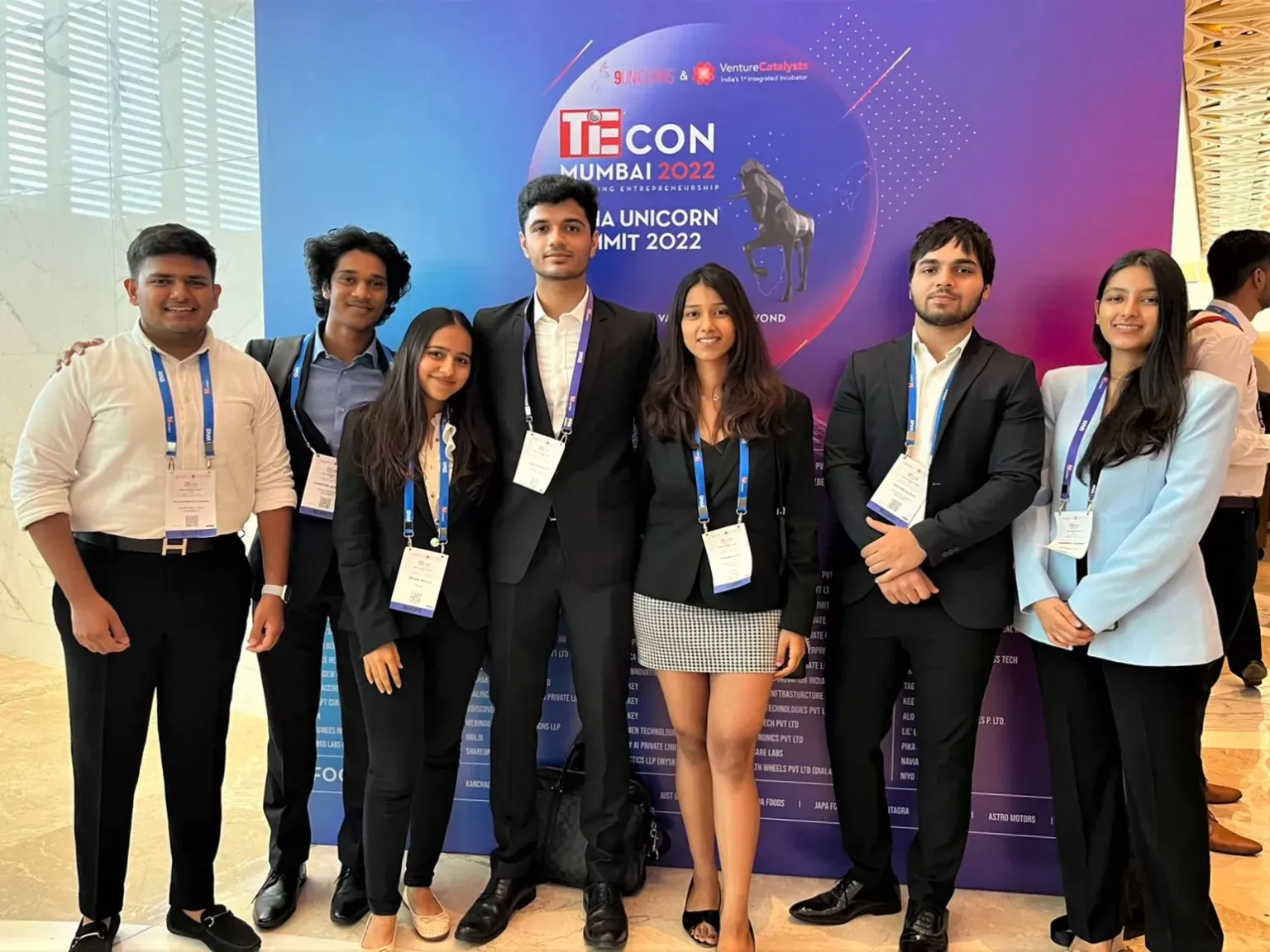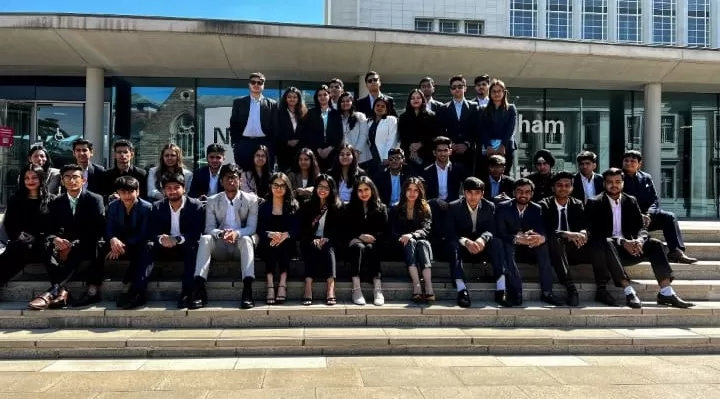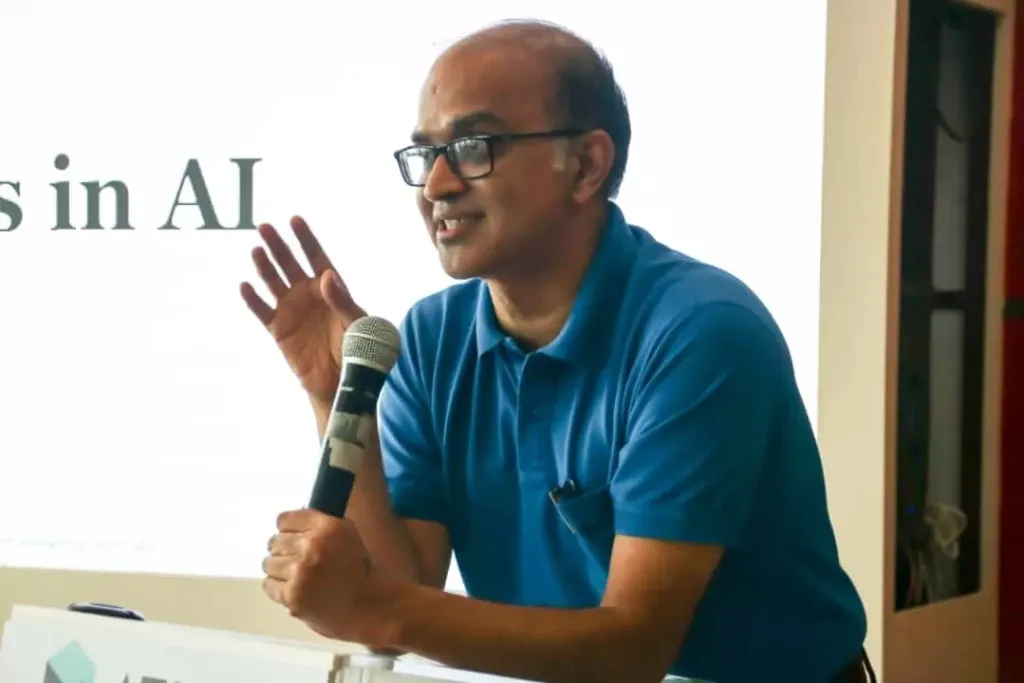Himanshu Mehta’s insightful session on the Impact of Geopolitics on International Business
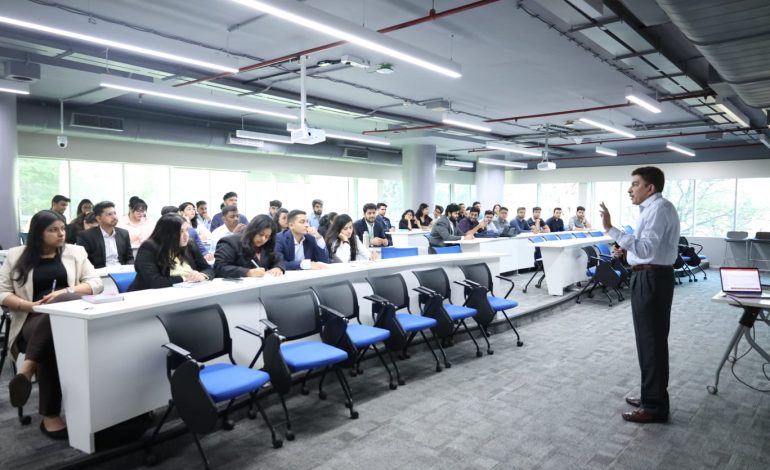
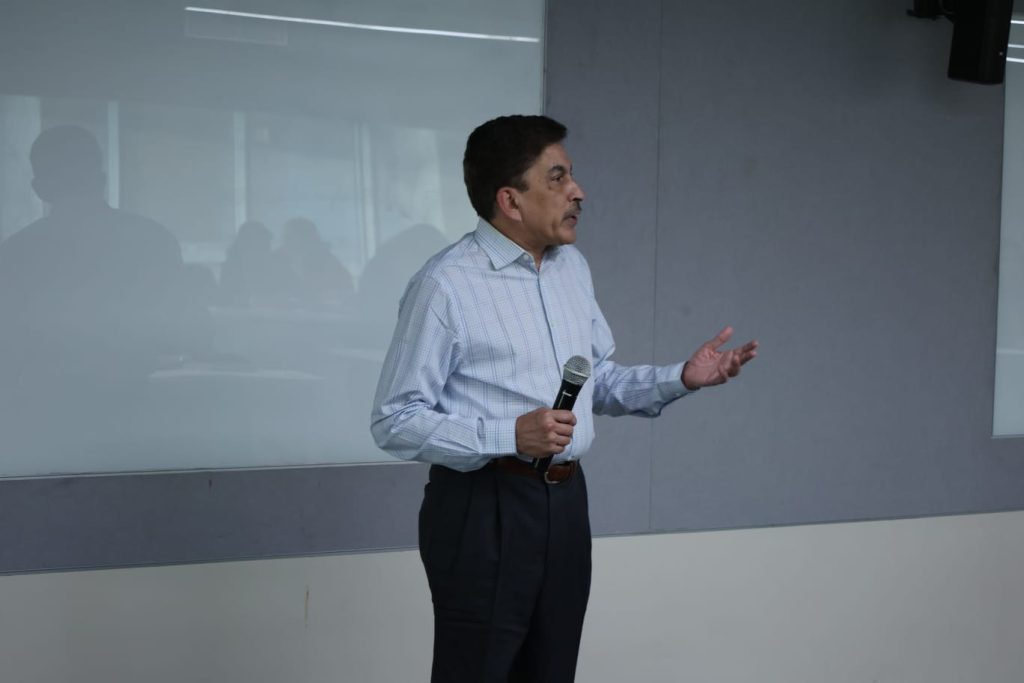
ATLAS | ISME School of Management & Entrepreneurship recently hosted Mr Himanshu Mehta, Former Managing Director & CEO at BNP Paribhas Wealth Management, where he conducted an insightful session on the Impact of Geopolitics on International Business.
The session covered some critical issues that helped students gain clarity on topics like the concept of geopolitics, conflict resolution, the impact of transformative age on the outlook for the global economy and global businesses, primary forces of disruption, geopolitical undercurrents, challenged democracy, impact of geopolitics on company’s specific functions, challenges of geopolitical risk management and developing a framework for risk mitigation. We present you the highlights and thoughts from the session.
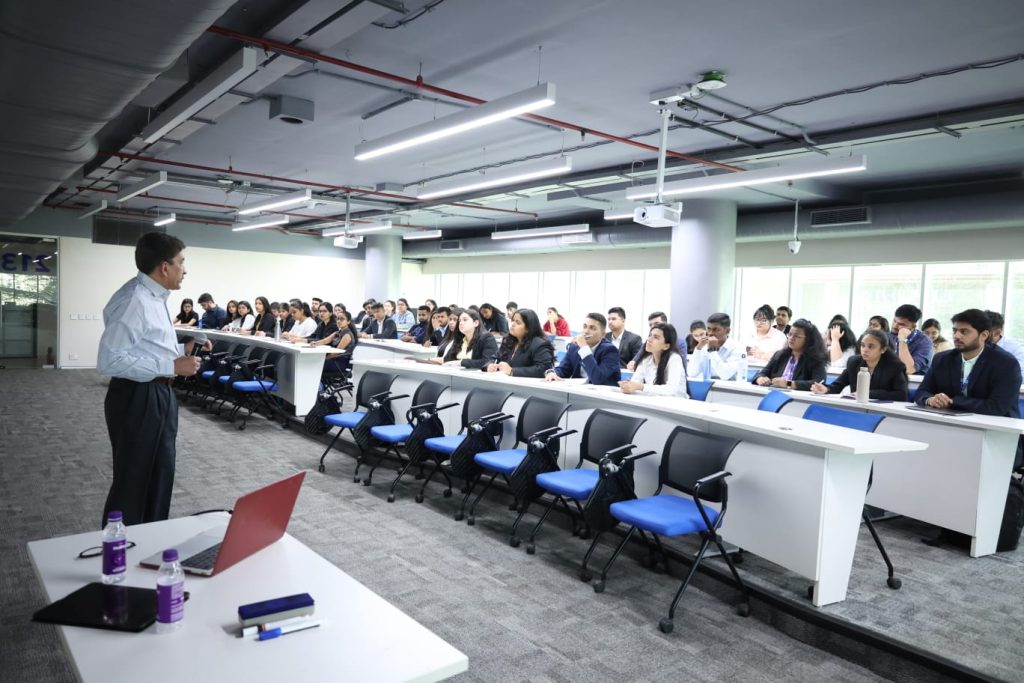
FLASHBACK: SOME GEOPOLITICAL SHOCKS
The session started off with flashbacks of some geopolitical shocks such as Pan Am – The 1973 oil crisis and the downing of Flight 103 in 1988, 9/11 and the Iraq war and the impact of geopolitical uncertainty in the corporate decision making. It was only in 2007 that the need to teach geopolitical risk to management students was first recognised.
Geopolitical events cause CEOs the greatest uncertainty because they, their boards and their management teams have absolutely no control over them. All company functions like production, distribution, marketing, sales, finance are handled by executives, while assessing and managing geopolitical risk ultimately rests with the CEO.
PAST RESEARCH
In a 2016 Mckinsey survey, 49% of executives identified geopolitical instability as extremely important when assessing impact on global business, up from 23% in 2015. But only 13% of them had taken any steps to include it in their operational strategies.
In a survey of 350 CEOs by the ToI, over half of them said that adaptability and ability to deal with ambiguity or uncertainty were the most important leadership traits. And nothing requires more adaptability and dealing with ambiguity than geopolitical risk and uncertainty.
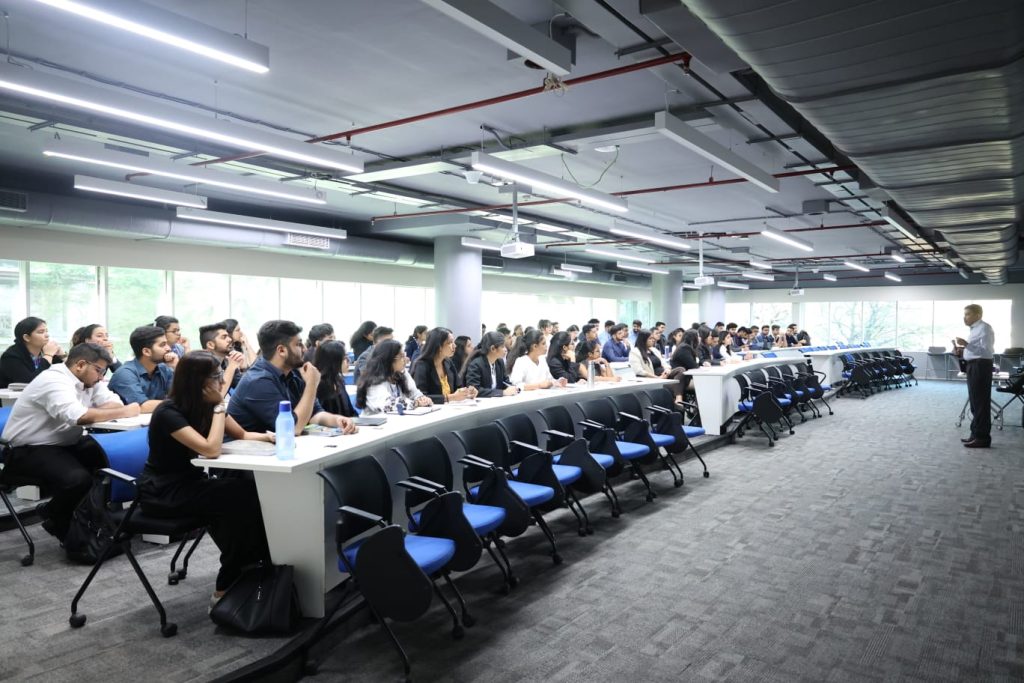
Risk, real or potential, can be anticipated and planned for to a certain extent. It affords time, however limited, to assign it a probability of occurrence and to develop contingency plans to overcome or mitigate it. Uncertainty is unforeseen. It can quickly turn into a crisis.
An issue ignored is a crisis invited
FOUR AREAS FOR THE CEO
Conflict resolution, understanding competitor’s behavior and predicting what people are likely to do is part of a CEO’s job. But conflicts arise from facts, beliefs and emotions, hence difficult to predict. Still, CEOs need to master 4 key areas:
- Problem Framing
- Scenario Planning
- Political Risk Management
- Crisis Leadership
WHAT IS GEOPOLITICS?
Geopolitics is the analysis of the geographic influences on power relationships in international relations.
Arguments about the political effects of geography- particularly climate, topography, arable land and access to the sea- have appeared in western political thought since at least the ancient Greek era. Geopolitical writings in the late 19th and early 20th century focused on the impact on world politics of the new technologies of the Industrial Revolution. Geopoliticians sought to understand how the new industrial capabilities of 3 factors – transportation, communication and destruction- interacting with the geographic features of the earth would shape the global international system.
The popularity of earlier geopolitical theories declined after WW2 because the emergence of nuclear explosives and long-range missiles reduced the significance of geographical factors in the global strategic balance of power. Political geographers began to expand geopolitics to include economic as well as military factors. In 2016, World Economic Forum categorised geopolitical risks into those arising out of geography, economy and environment.
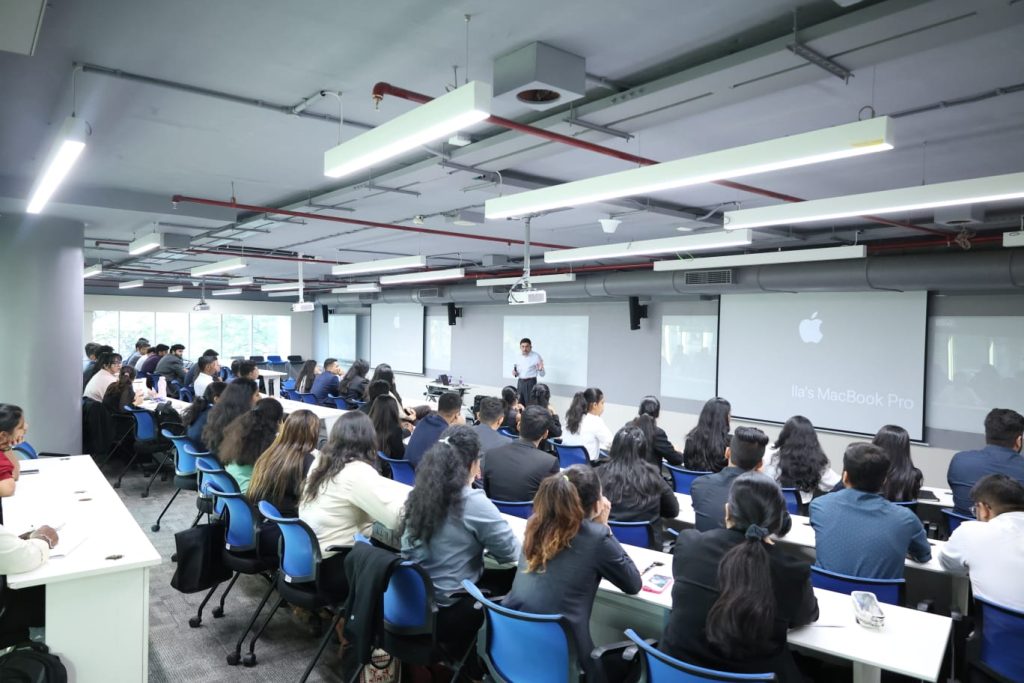
Today geopolitics include everything that happens in the world and how these events and trends influence and shape a country’s foreign policy and its efforts at exercising influence and control over other nations.
In the last global economic downturn FDI slowed overall. It decreased 14% in developing countries and 59% in developed countries. But a majority of them are not fully prepared to understand and mitigate it.
The corporate world lacks the models and instruments to remain confident in its understanding of geopolitical trends and their effects.
PRIMARY FORCES OF DISRUPTION
A combination of 3 primary forces of disruption are driving economic, social and political disruption globally: Technology (e.g. AI), Globalisation (e.g. populism) Demographics (e.g. ageing). The 3 primary and interrelated disruptors are shaping a number of longer term disruptive geopolitical undercurrents that affect the established norms of doing business and global governance, causing uncertainty in the business environment and adding complexity to corporate planning.
The Fourth Industrial Revolution (4IR), combining big data, analytics and technology, promises not only to disrupt industry structures, wealth distribution and labor markets, it will also reshuffle the geopolitical order.
GEOPOLITICS AND ITS IMPACT ON BUSINESS
Companies are impacted by geopolitical risks directly through their portfolios. For example, the year 2016 saw increase in defaults of shale producers after Saudi Arabia increased oil output in 2015 or 2017 ended in record re-insurance losses due to a series of major hurricanes and earthquakes globally.
Geopolitics may bring changes in operating conditions like impact on operating models, requiring businesses to revisit investment as well as their legal entity footprint as in the case of Brexit and the introduction of sanctions against Russia. And lastly, the secondary impacts. For example, with the move to digital and cloud, IT infrastructure and supply chains are more vulnerable to cyberattacks and natural disasters.
The outbreak of violent conflict near a subsidiary increases the likelihood of divestment by 52%
Technologically advanced companies were, in one study, eight times more sensitive to political risks than their technologically lagging counterparts
Investors and creditors are wary of corporations that are facing significant political risk. They perceive these organisations as riskier investments which results in an increase in the cost of capital.
Increasing political risk from the 25th to the 75th percentile equates, roughly, to a 3% increase in the cost of capital.
TRADITIONAL APPROACH OF GEOPOLITICAL RISK MANAGEMENT
Traditionally businesses relied on historical analysis and expert-based inputs to assess likelihood and implications of geopolitical events. They measured magnitude of impact through scenario analysis and stress testing. But four main limitations to these traditional approaches:
- Limited early warning
- Lack of precedent
- Complex interactions
- Management bandwidth
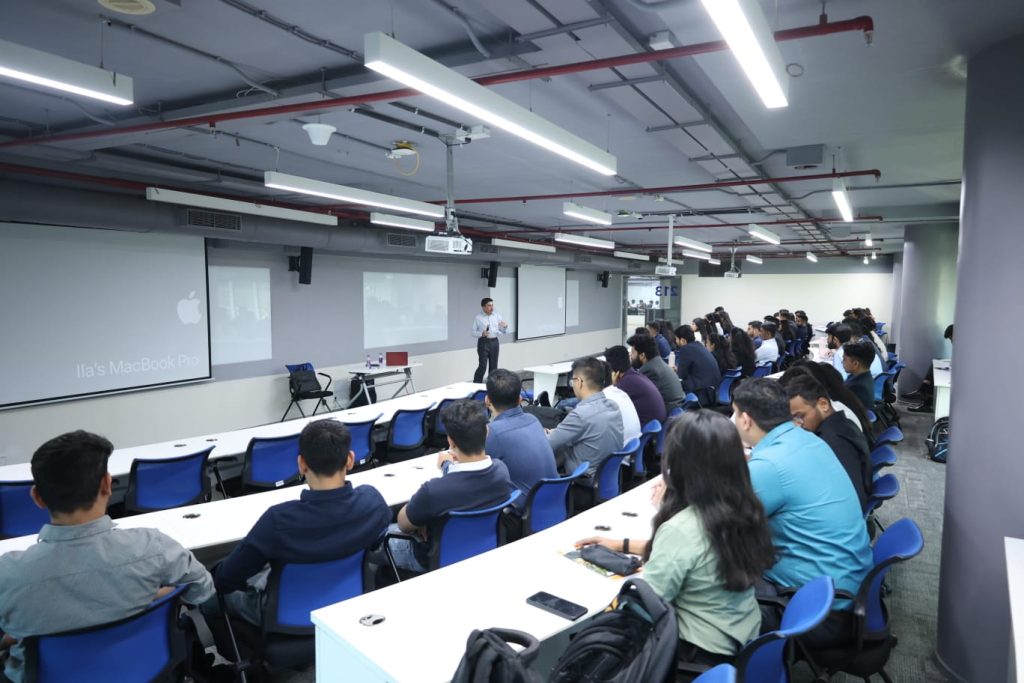
DEVELOPING A FRAMEWORK FOR RISK MITIGATION
In order to develop a framework to mitigate geopolitical risks, MNCs must:
- Understand the specific nature of the relationship between corporate globalization and geopolitics
- Devise a risk / response framework
- Map the “sites of risk”
- Adopt forecasting tools to enhance their enterprise resilience
Mastering the ‘sites of risk’ is the CEO’s main preoccupation
THE 7 SITES OF RISK
- Presence in emerging and unstable markets
- Distribution of personnel
- Headquarters- physical exposure of the “corporate brain”
- Supply chains and partnerships
- Market volatility
- Capital hazard
- Information vulnerability
THE RESPONSE FRAMEWORK
- Purchase terrorism insurance: Federal Terrorism Reinsurance Plan
- Comprehensive overview of the relationship between the sites of risk and the company’s mission, strategy and operations
- Short term and long term solutions for each risk
- Scenario planning techniques: Gather intelligence, devise scenarios, assess probabilities, early warning systems, devise strategies
In an era of high uncertainty, a firm must be prepared for ALL outcomes
We wholeheartedly thank Mr Himanshu Mehta for conducting this session and enriching our students’ learning experience!
About Himanshu Mehta
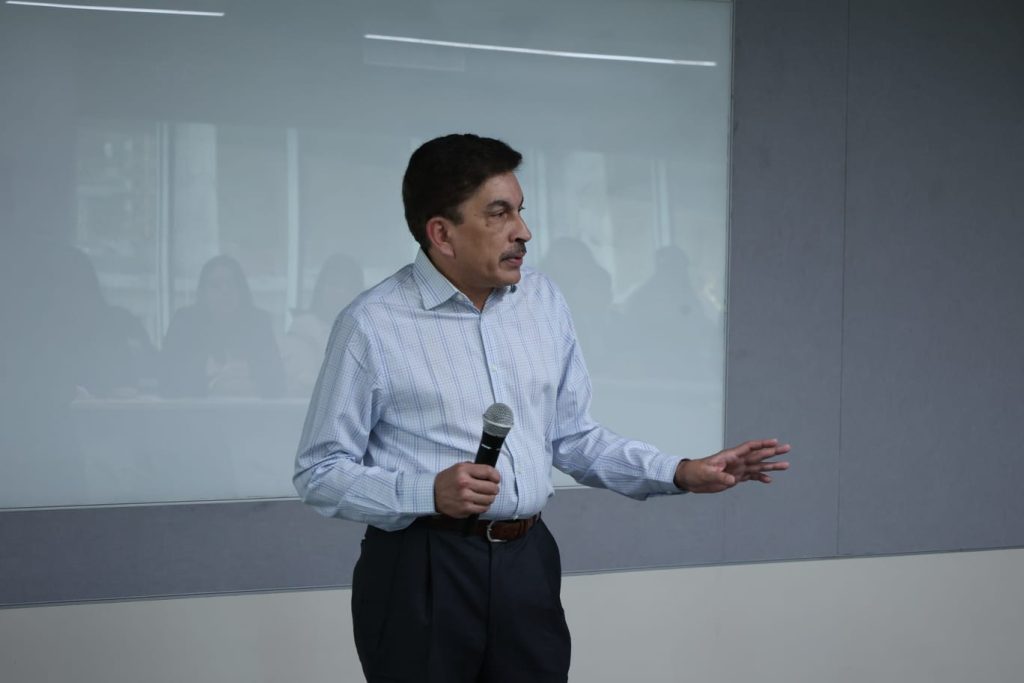
Himanshu Mehta has been a seasoned international banker with over 32 years of experience in the United States, Europe and Asia. He has held senior leadership positions across corporate and investment banking, credit risk management and wealth management. A high-performing executive with fluency in French language and expertise in working across cultures, Himanshu has been a skilled strategist with proven proficiency in navigating multiple banking cycles and global financial crises. His extensive media background with regular television appearances in the US and his experience as a guest speaker at universities in the US, France, Indonesia and India make Himanshu a sought-after contributor on panel discussions and academia.


